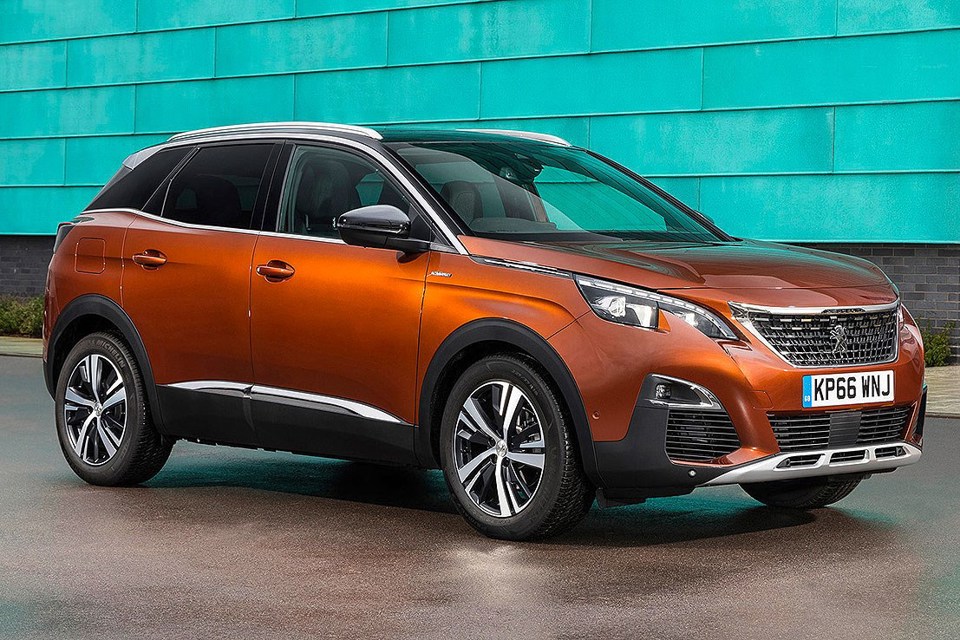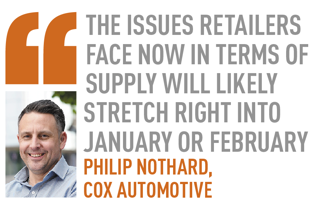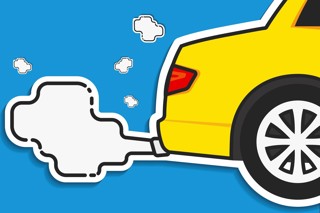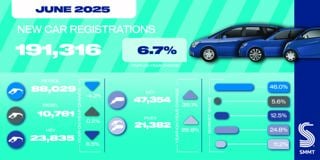PSA Group overtook the Volkswagen Group as Europe’s best-selling car brand as the effects of WLTP’s implementation resulted in the region’s biggest monthly registrations decline in a decade during September.
Jato Dynamics’ monthly analysis of 27 markets across the region showed that the German manufacturing group had failed to lead the market’s rankings by group for the first time in almost eight years as the Worldwide Harmonised Light Vehicle Test Procedure (WLTP) regime took its toll on the supply chain.
PSA topped by virtue of the fact that its 8.4% volume decline (to 200,400 registrations) was smaller than the impact felt by its key rivals.
Peugeot posted the highest market share gain during September and Opel/Vauxhall posted the highest volume of new registrations, Jato revealed.
Other market share winners included Hyundai-Kia and BMW Group, whose BMW brand was the best-selling premium brand, following a lower monthly decline at 7.4% than its rivals Mercedes-Benz, which was down by 13.7%, and Audi, which was down by 60.4%.
 WLTP's impact
WLTP's impact
The effects of WLTP saw Jato’s market movement graphics for all but one of the 27 European nations shift into the red last month, with the UK’s 20.5% decline in registrations (to 338,834) placing it 12th in a ranking of the worst performers.
Overall, the European market saw 1.12 million vehicles registered last month – 23.4% (343,000) less than in September 2017.
Jato said that the drop had followed August’s inflated results, which were boosted by an increase in business registrations and stock clearances ahead of the introduction of WLTP on September 1.
Despite August’s increase and September’s decline, volume was only down 3% between the two months, however, meaning the year to date figures haven’t been strongly impacted and remain 2.3% up year-on-year, with 278,000 more registrations than this time last year.
 How has the introduction of WLTP affected your franchised car dealership? Click the tab to tell AM about your dealership's experience of managing the shift to WLTP and RDE fuel economy and emissions test regimes by taking this month's 'one minute' multiple-choice survey.
How has the introduction of WLTP affected your franchised car dealership? Click the tab to tell AM about your dealership's experience of managing the shift to WLTP and RDE fuel economy and emissions test regimes by taking this month's 'one minute' multiple-choice survey.
Felipe Munoz, JATO’s global analyst, said: “This is a huge drop, but it was somewhat expected across the automotive industry.
“We will continue to see registrations decline so long as a large portion of the market’s versions remain unavailable under the new test conditions.
“The big question now is how long the drop will last, which will depend on how long it takes car makers to homologate the models they want to keep on the market.”
Jato noted that fleet registrations had posted another big drop in September, with market share falling from 59% to 53%.
It said in its monthly statement, however, that the net effect of the August/September decline, it is worrying that the overall drop was largely driven by private registrations, which were down by 9%.
“The decline was most strongly evident with diesel cars, which recorded one of its lowest market shares ever with just 32.9% and a volume decline of 40%,” the Jato report said.
“In contrast, electric, hybrid and plug-in vehicles posted their highest market share to date at 7.9%, as demand for them bucked the general market trend and increased by 12.7% to 85,300 units.”
SUVs also bucked the general downward trend and gained market share in September.
Jato said that a 10.9% decline in registrations, to 407,500 units, had resulted in a rise in market share from 31.3% in September 2017 to 36.4% in September 2018.
It said that the segment was populated by newer models which were less severely impacted by the shift to the WLTP testing procedures.
Decline among the brands
All of the Volkswagen Group’s brands lost market share in September, a month which saw the brand account for 49% of the UK’s overall market decline.
 The effects of the manufacturer’s WLTP-stifled production levels were felt most severely in its native Germany, where volume was down by 61.
The effects of the manufacturer’s WLTP-stifled production levels were felt most severely in its native Germany, where volume was down by 61.
Other makers that also lost traction included Renault-Nissan and FCA.
The Opel/Vauxhall Corsa overtook the VW Golf to become the best-selling model in Europe.
The Golf had occupied the top spot since March 2017, but saw what Jato described as a “huge” 71% decline during September to fall 12 places to 13th place in the rankings.
Demand for the Corsa, which had been wavering during recent months, saw an increase during September, mostly in the UK, Germany and France, meanwhile.
Other models that performed well included the Toyota Yaris, which moved up the rankings to 4th place, the Mercedes A-Class, which was the best-selling compact car (partly boosted by its new generation), and the Peugeot 3008, which was the top-selling SUV of the month.
Among the market’s latest launches outside of the top 25, the Volkswagen T-Roc recorded 10,347 registrations and occupied the 33rd spot in the rankings, the Citroen C3 Across had 8,663 registrations, Opel/Vauxhall Grandland had 7,526, Hyundai Kona had 6,571, Skoda Karoq had 6,571, Volvo XC40 had 6,037, Seat Arona had 4,888, BMW X2 had 4,777, Kia Stonic had 4,471, Nissan Leaf had 3,989, and the Jaguar E-Pace had 3,076 registrations.



















Login to comment
Comments
No comments have been made yet.